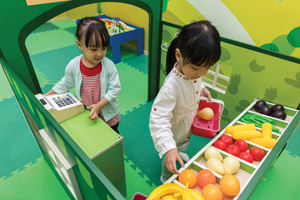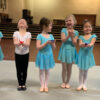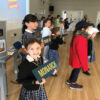
All children love ‘pretend play’ or ‘role-play’. As parents we can see them do it at home when they copy what they see others doing; whether it is pretending to put the washing in, ‘helping’ with mummy’s or daddy’s work, dressing up and being a firefighter or playing shops.
Children are just having fun when they are pretending to be someone else but effective role-play gives children the opportunity to try out ideas in a safe environment. It allows them to explore boundaries, make sense of the world and develop their own identities. Some play centres are now focussed on role-play where children can act out various roles and jobs from the real world; children can deliver the post, put out a fire or solve a crime. Through pretend play, children are learning to understand the basic principles of society and how it functions, and the important rules and routines of everyday life. Fundamentally, children are given the chance to play out events and situation they have seen in real life, and if necessary, to try and make sense of them.
In schools where children are routinely tested on what they have remembered and understood in class, giving children space where they are free to express themselves and pretend to be someone different for a while allows them to not only learn what they like or dislike but also have empathy with other people. Role-play allows children to experiment with different social situations as well as different emotions. In a play centre where they can act out various roles alongside other children, they learn how to interact, co-operate and collaborate with each other in order to play.
It is easy to see how role-play improves children’s communication skills. When they go to the shops with you, they will listen to how you and the staff communicate and then try to replicate it in their role-play situations (which can be funny to see!). It is very interesting to see what they pick up from us and the world around them. Additionally, role-play is a great way of developing children’s fine motor skills as they dress a doll, use coins or dish up pretend food.
Toddlers will engage in simple pretend play such as talking on the phone or using keys, as they grow a little older and skills are more developed children will love to be fully immersed in familiar role-play scenarios such as going to the shops or the doctors and by the time
they go to school the scenarios will become quite complex and they will want to replicate real life situations with other children where they take on different roles.
When children are imagining they are someone else for a while, one of the most important things they learn is how to have empathy with another person. Even as a preschooler they will have the first inkling of what it is like to be a policeman, a firefighter or a teacher and as their sense of empathy becomes more developed it can help them in many areas of life, and in dealing with different types of people at school and in the outside world.
Albert Einstein put it as well as anyone when he said: “Imagination is more important than knowledge. For knowledge is limited to all we now know and understand, while imagination embraces the entire world, and all there ever will be to know and understand.”










